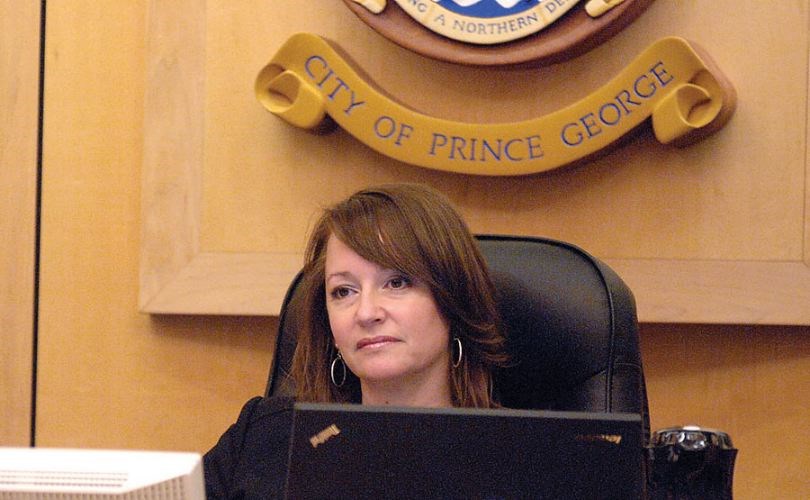City centre businesses opposed to the return of paid parking on downtown streets are planning a rally in advance of an expected vote tonight by city council.
The Downtown Business Improvement Association (DBIA) will gather at Nancy O's at 6 p.m., prior to mayor and council considering a new paid-parking plan downtown.
"We have a broken system and it needs to be fixed," said Mayor Shari Green, who was once the DBIA president and led the lobby to try the free system that has been in place for the last several years. Now she is convinced "it failed miserably."
The problem, she said, was brought to them by businesses complaining that parking violators were hogging all the spots in front of their businesses so shoppers had to park far away from their intended destination.
"That is absolutely ridiculous," said DBIA director Darren Low of City Furniture. "No one ever has to walk more than two blocks to get where they need to go downtown. You have to walk farther to get from your car to half the stores in the mall."
The simple fix, said Low, is towing. It is legal, under provincial legislation, for municipalities to impound the vehicles of parking violators. He believes if the city would have a fine that covered the impoundment fee, the city would not only get back all its money, it would also create a culture of compliance.
"That part is coming," said Green. "We are going to start towing."
Under the current system, downtown parking violators were not only overstaying their welcome, they were not paying their fines. Unpaid parking fines and other system costs (off-street parking lots still have to be maintained, the streets are still plowed, and city staff have still been patrolling the streets for violators) have amounted to about $500,000 since the experiment began.
The city - as with many B.C. municipalities - has no legal means to collect fines from people who refuse to pay.
While DBIA members insist that pay parking unfairly sets them apart from the free parking at city shopping malls, Green says those developments had to set aside enough parking for staff and customers. Downtown businesses were not so required. Furthermore, shopping malls pays for their own snow removal and parking lot maintenance while the streets and sidewalks outside of downtown businesses are cleaned and maintained with city tax dollars.
Even the downtown parking levy all downtown landowners must pay (Low says he paid more than $19,000 last year, on top of his other municipal taxes) only covers the costs of the parkades, which downtown workers are encouraged to use instead of taking up street stalls intended for shoppers.
Mall shoppers are still paying for paying, Low said, since the costs are just passed down from the merchants to the consumer, making the payment invisible. Paid parking downtown, however, is a direct cost and a hassle to shoppers.
Not only will many shoppers avoid downtown as a result, he said, but new businesses themselves will avoid opening at all in the downtown core.
"People are not going to be so afraid of $1 an hour that they stay away from their favourite stores, and if you're really concerned about that as a business, then use this as an opportunity to compete for the attention of those customers by offering parking validation or other incentives to get them in your doors," Green said. "And there are ways of getting downtown, especially for the repeat users like staff, that are cheaper than paying all day long. The parkades are extremely well priced, if you insist on driving, but we have a transit system and many people already bike to work, so there are ways of offsetting the parking concerns."
Some, but not a majority of the DBIA, said Low, have even suggested there be no paid parking at all downtown, making it a total free-for-all and saving money by not having to employ enforcement staff.
That will not be the outcome, however, at tonight's meeting.
"Council already voted to say yes to pay parking," Green said. "The vote tonight is just on what it's going to look like."
Low said no decision is final, adding that it would cost the municipality nothing to defer the choice to a future date to allow more meaningful public discussion. Despite the city's claims that consultation was held, the number of petition signatures gathered in the last few weeks by the DBIA suggests that the public was not properly engaged, he said.



